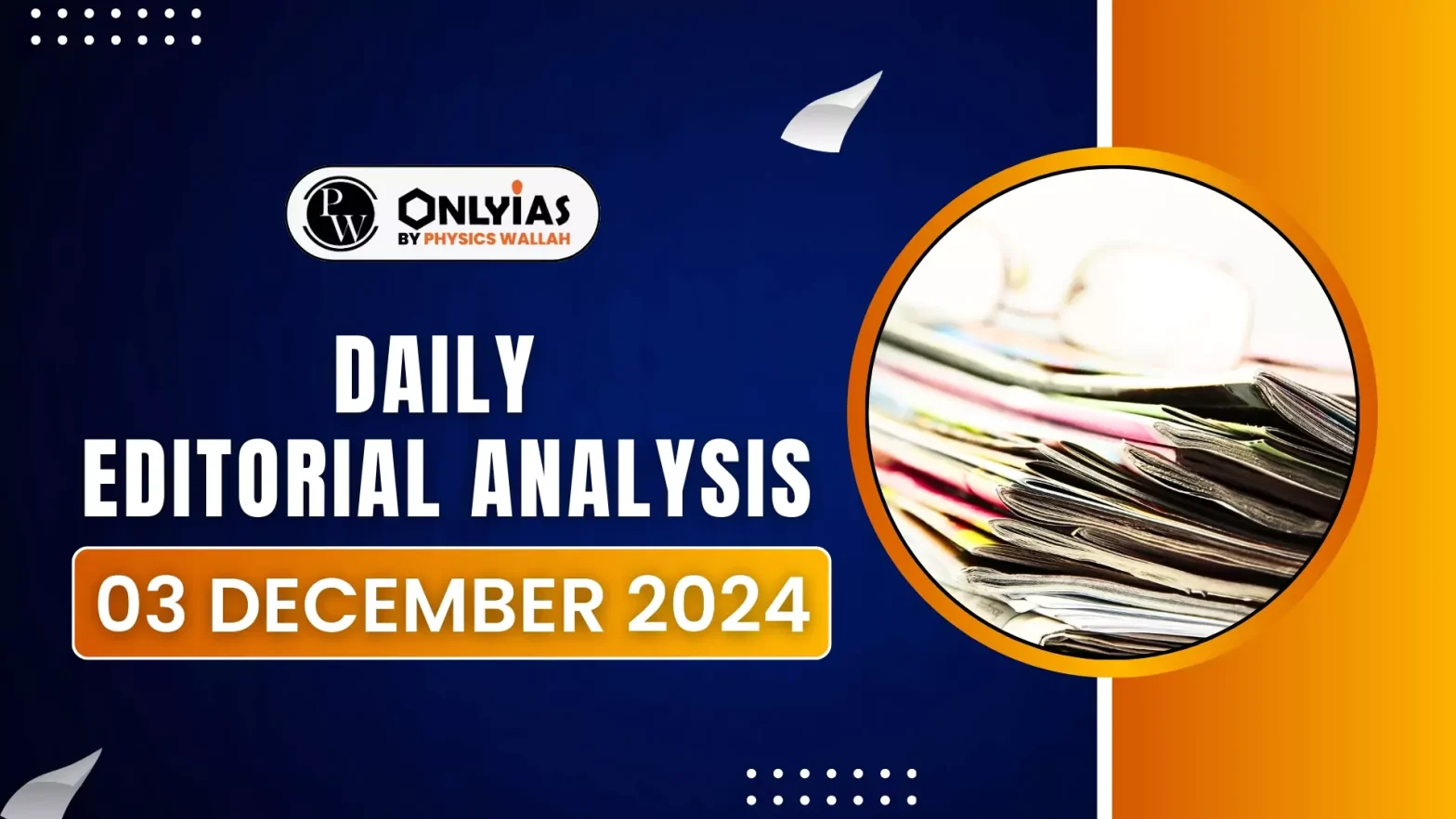India’s disability governance, as outlined by the RPWD Act, 2016, has not fully embraced a social and human rights-based approach to disability rights, indicating a need for reforms.
Key Facts
- According to the 2011 Census, persons with disabilities constitute 2.21% of the total population, though this figure is underestimated.
- WHO 2019 Brief Disability Model Survey reported a 16% prevalence of severe disability among Indian adults.
Enroll now for UPSC Online Course
Steps Already taken by india
- India ratified the UN Convention on the Rights of Persons with Disabilities (UNCRPD) in 2007, necessitating the alignment of national laws with its principles.
- The Rights of Persons with Disabilities Act, 2016 (RPWD Act) replaced the 1995 Act to promote a social and human rights model of disability rights.
The Role of the State Commissioner for Disabilities
- One of the unique provisions of the RPWD Act is the creation of the office of the State Commissioner for Disabilities at the state level.
- This role combines review, monitoring, and quasi-judicial functions to ensure the effective implementation of disability laws.
- According to Section 82 of the RPWD Act, State Commissioners are granted quasi-judicial powers equivalent to those of a civil court under the Civil Procedure Code, 1908.
- Additionally, all proceedings before the State Commissioner are deemed judicial proceedings under Sections 193 and 228 of the Indian Penal Code.
- The State Commissioners have the authority to take suo motu (on their own initiative) action in cases of policy violations or issues that contravene the RPWD Act, identifying and recommending corrective measures.
Despite these provisions, the effectiveness of the State Commissioner’s office has been hindered due to various challenges.
Challenges in the Functioning of State Commissioners for Disabilities
- Appointment Issues:
- Delay in Appointments: Delays in appointing State Commissioners hinder timely action on disability-related issues.
- Lack of Impartiality: Civil servants from the nodal ministry are often appointed, leading to concerns about bias and lack of independence.
- Limited Civil Society Representation: Only 8 states have appointed commissioners from civil society (as per the 2021-22 report), limiting diverse expertise and perspectives.
- Non-utilization of Powers:
- Limited Suo Motu Interventions: There is a lack of proactive action by State Commissioners in addressing discriminatory policies, weakening their role in safeguarding disability rights.
- Erosion of Trust: Inactive use of powers contributes to a decline in public trust in the effectiveness of the office.
- Capacity Constraints:
- Inadequate Training: State Commissioners often lack sufficient training in quasi-judicial functions and the complexities of disability law, limiting their ability to address issues effectively.
- Additional Charges: Commissioners frequently have additional responsibilities, diverting focus from their primary duties concerning disability rights.
- Absence of Independent Office: The lack of a separate, dedicated office hampers the independence and effectiveness of the Commissioner’s role.
- Lack of Leadership: The absence of strong, focused leadership affects the overall functioning and impact of the office.
Check Out UPSC Modules From PW Store
Other Challenges
- Discriminatory Policies: Despite the existence of laws like the RPWD Act, discriminatory policies persist in various sectors, and there is inadequate enforcement to address these violations.
- Stakeholder Engagement: There is insufficient proactive engagement with organizations and individuals with disabilities to identify and address violations, limiting the responsiveness of the system.
Recommendations for Strengthening Disability Governance
- Inclusion of Qualified Civil Society Organizations:
- Appoint civil society experts and organizations with deep knowledge of disability rights to ensure impartiality and effectiveness in the role of State Commissioners.
- Empowerment to Take Suo Motu Actions:
- Ensure that State Commissioners have the authority to take proactive actions (suo motu) in cases of policy violations or discrimination, strengthening their role as advocates for persons with disabilities.
- Increased Interaction with Stakeholders:
- Foster regular engagement with Organizations of Persons with Disabilities (OPDs) and individuals to better understand challenges and identify violations of the RPWD Act. This will improve the responsiveness and relevance of policies.
- Nationwide Implementation of Best Practices:
- Implement successful initiatives, such as mobile adalats and District Disability Management Reviews, karnataka model, across all states to standardize and improve disability governance nationwide.
- Adopting Technology for Transparency:
- Utilize digital dashboards and other technological tools to track complaints, case resolutions, and policy compliance, ensuring transparency and accountability.
- Collaboration with UN Entities:
- Strengthen collaborations with UN bodies under the UN Disability Inclusion Strategy to incorporate international best practices and evidence-based policies in India’s disability governance.
- Capacity Building of Commissioners:
- Provide systematic training for State Commissioners, focusing on disability law, quasi-judicial functions, and effective grievance redressal. This will enhance their capacity to function effectively in their roles.
- Research and Collaboration: Promoting research in areas like:
- Disability-inclusive social protection.
- Care economy.
- Climate change impact on persons with disabilities.
Karnataka’s model for disability governance is centered on inclusivity and accountability.
- The state emphasizes capacity building through collaborations with law schools and legal experts, ensuring State Commissioners are well-trained.
- Mobile adalats provide on-the-spot grievance redressal, especially in remote areas.
- The District Disability Management Review (DDMR) monitors the implementation of disability programs, ensuring compliance with policies and quotas.
- Karnataka also integrates District Magistrates as Deputy Commissioners for persons with disabilities, strengthening local governance.
- Additionally, the state promotes research and collaborates with UN entities to drive evidence-based policymaking, setting a progressive example for others.
|
Enroll now for UPSC Online Classes
Conclusion
State Commissioners for Disabilities play a critical role in upholding the RPWD Act’s principles. To realize the vision of inclusive and equitable disability governance, they must transition into proactive guardians of rights. Learning from progressive models, such as Karnataka, and adopting a rights-based approach will ensure dignity and equity for persons with disabilities across India.
To get PDF version, Please click on "Print PDF" button.

